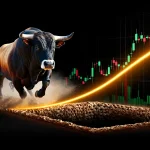Examples of Herd Mentality: Learning to Win
March 31, 2025
The Beast of Consensus: Herd Mentality’s Grip on Reality
Herd mentality, a psychological force of nature, isn’t just about blending in—it’s about the overwhelming pull to conform. It’s the spark behind market bubbles, fashion revolutions, and social uprisings. A quiet, invisible hand steers countless actions, decisions, and movements without ever needing a whisper.
Market Chaos: When the Mob Rides the Wave
Take GameStop, 2021. Retail investors, acting as one, propelled the stock to outrageous heights. Here, the herd didn’t just follow—it flipped the script, reshaping Wall Street’s foundations. In a matter of days, the conventional narrative buckled under collective pressure.
Trends: The Invisible Force Behind Fashion’s Fickle Nature
Fashion? Same story, different outfit. Trends appear, disappear, and are reborn with nothing but the collective will of a group. One day, it’s high-waisted jeans; the next, it’s leather jackets. In a blink, a style is born out of thin air, then vanishes into oblivion.
The Echo of Revolutions: Power in Numbers
From social protests to the echo chambers of political movements, the crowd doesn’t just act—it propels history. Without a leader, without a plan, the momentum builds. Individuals, in their newfound anonymity, are free to do what they’d never dream of alone. It’s the paradox of power—individuals wield influence by surrendering their self-control.
Cognitive Ripples: How Le Bon and Freud Stare Into the Abyss
Le Bon’s theory of crowds morphing into primal beings resonates as we witness mass hysteria today. Freud deepened the idea: the herd instinct is an unconscious force that rises from the depths of our minds. This isn’t just group behaviour—it’s an almost instinctual pulse shared by all, bending reason into waves of emotion.
Information Cascades: From Bubbles to the Bleachers
Sushil Bikhchandani’s work shows the dangerous speed of crowd-driven information. In a cascade, individuals abandon their personal knowledge and follow the crowd’s momentum, never realising they’re part of a feedback loop. What begins as a whisper in one corner of the crowd can quickly become a roar heard across the globe.
Winning Alone: The Paradox of Individual Power Amidst the Herd
The herd is powerful, but it’s also a trap for the unwary. Understanding herd mentality isn’t just about predicting the next GameStop—it’s about knowing when to step off the carousel. For investors, it’s about recognising the ebb and flow, not as participants, but as navigators of the storm.
The Mass Awakens: Unleashing Collective Intelligence
The power of the crowd isn’t just chaos. At times, it’s brilliance. Crowdsourcing has become the modern-day oracle, where collective intelligence, tested by thousands of minds, can predict trends and give insight. But here’s the twist: Just because something’s popular doesn’t mean it’s wise. The crowd’s wisdom can be a double-edged sword—sharp but easily misused.
In this multi-dimensional storm, the real art lies in harnessing the crowd’s energy while holding onto your perspective. Recognising when you’re just another voice in the roar is the first step to turning herd mentality from a dangerous force into an asset.
The Psychology of Herd Mentality: Understanding Human Instincts
To truly grasp the herd mentality, we must explore the psychological factors driving individuals to follow the crowd. This behaviour is rooted in human instincts and cognitive biases. The need for social validation and acceptance is a critical factor. As social creatures, we often seek affirmation from others, leading to conformity with group opinions and behaviours.
Another influential factor is the fear of missing out (FOMO). In investments, FOMO can drive individuals to follow the crowd, fearing they will miss out on gains. Confirmation bias, where individuals seek information confirming their beliefs, also contributes to herd mentality, making it challenging to consider alternative perspectives.
Additionally, the concept of safety in numbers plays a role. Individuals may feel a sense of security and reduced responsibility in a larger group, leading to a lack of critical thinking. Understanding these psychological factors can help investors adopt a more independent and rational decision-making approach, avoiding the pitfalls of herd behaviour.
Herd mentality is a powerful force driven by social validation, FOMO, confirmation bias, and the desire for safety in numbers. By recognising these factors, investors can make more informed investment choices, harnessing the crowd’s collective intelligence while mitigating potential drawbacks.
The Dark Side of Herd Mentality: Lessons from Market Bubbles and Crashes
When exploring the herd mentality, it is crucial to acknowledge its potential negative consequences. Throughout history, market bubbles and crashes have occurred due to herd behaviour. Two notable examples are the dot-com bubble of the late 1990s and the 2008 housing market crash.
In the dot-com bubble, investors, driven by herd mentality, poured money into internet companies without assessing fundamentals, leading to excessive valuations. Eventually, the bubble burst, resulting in significant losses. Similarly, speculative buying and easy credit fueled the housing market crash, with investors failing to assess risks critically. The herd mentality exacerbated the problem, leading to a global financial crisis.
These events highlight how herd behaviour can distort market dynamics, with investors chasing profits without considering underlying value or risks. The fear of missing out and assuming the crowd is right can cloud judgment. Investors can avoid such pitfalls by recognizing market exuberance, conducting due diligence, and employing diversification and risk management strategies.
Overcoming Herd Mentality: Embracing Independent Thinking
Breaking free from the herd mentality requires conscious effort and independent thinking. Investors should cultivate a contrarian mindset, questioning consensus views and seeking undervalued assets. Developing research and analysis skills is vital, as is staying informed about market trends and asset valuations. Maintaining a long-term perspective helps avoid knee-jerk reactions to short-term volatility.
Successful investors emphasize discipline, sticking to their investment strategies despite short-term market fluctuations or crowd noise. By focusing on fundamental analysis, long-term goals, and risk management, investors can make informed decisions and avoid the negative impacts of herd behaviour.
The Impact of Social Media: From FOMO to FUD
Social media platforms have amplified herd mentality in the digital age, giving rise to FOMO (fear of missing out) and FUD (fear, uncertainty, and doubt). These platforms create a sense of urgency, influencing investment decisions. Positive or negative sentiments spread rapidly, triggering herd-like reactions and impacting market volatility.
Investors must critically evaluate social media information, considering sources’ motivations and biases. Establishing clear investment strategies and focusing on fundamental analysis helps mitigate social media-driven herd behaviour. Independent research and a disciplined approach enable investors to separate insights from speculative noise.
Herd Mentality Beyond the Stock Market
Herd mentality extends beyond finances, influencing fashion trends, consumer behaviour, and political movements. Individuals conform to social norms, seek acceptance, and rely on collective wisdom. Recognizing herd behaviour in these contexts provides insights into human psychology and societal dynamics.
Fashion trends, for example, emerge and gain popularity through collective influence. Consumer behaviour is also impacted, with individuals influenced by social proof, aligning their choices with popular products or brands. Understanding the broader implications of herd mentality helps develop critical thinking and independent decision-making, ensuring choices align with personal values and goals.
To conquer FOMO, investors should:
Define clear investment goals and stick to a long-term plan aligned with those objectives, providing purpose and reducing the urge to chase short-term trends.
Conduct thorough research to understand the fundamentals driving an asset’s value, enabling informed decisions based on solid reasoning rather than FOMO.
Assess risk tolerance and develop a suitable risk management strategy. Knowing one’s financial situation, time horizon, and willingness to tolerate market fluctuations helps make appropriate investment choices.
Avoid emotional decision-making by objectively evaluating potential risks and rewards, ensuring alignment with overall strategy and risk tolerance.
Diversify the portfolio across asset classes, sectors, and regions to mitigate the impact of individual fluctuations and the fear of missing out on a single opportunity.
Stay informed through reputable sources but avoid overexposure to financial news and social media, which can fuel FOMO. Set boundaries and focus on balanced, objective perspectives.
Random Musings on the Stock Market
At the Tactical Investor, we understand the importance of emotions in the stock market and strive to educate our readers on the nuances of Mass Psychology. The study of herd mentality is crucial to understanding the masses’ actions and decisions and their impact on the market.
In order to find a solution one has to identify the problem; once identified the solution is relatively simple. Sol Palha
As traders and investors, we must maintain a calm and collected demeanour and avoid letting emotions cloud our judgment. By acknowledging and understanding our feelings, we can make informed decisions that are not driven by impulsiveness. Instead, we can adopt a steady and systematic approach, allowing us to build wealth over time.
One does not need to control their emotion but become aware of them; once you know them, you can let them run amock or tell them to take a hike. Sol Palha
The key to success in the stock market is to embrace failure and learn from it. Each failure gives us a new opportunity to grow and improve. At the Tactical Investor, failure is a stepping stone to success. We strive to give our readers the tools and knowledge to overcome obstacles and achieve their financial goals.
Confirmation Bias: A Psychological Study of Crowd Phenomena
The concept of “the Crowd” emerged as a new phenomenon in the late 19th century in major European cities like Paris and Milan. This period, known as the fin de siècle, was characterized by rapid urbanization, industrialization, and technological advancements that transformed daily life. The population experienced a faster pace of living and witnessed the development of inventions such as the light bulb, radio, photography, telegraph, bicycle, telephone, and railroad system.
Influenced by Darwin’s evolutionary theory, legal reformers argued that Europe’s social and legal systems were founded on outdated notions and ignored the irrevocable biological laws of human nature. They aimed to align social laws with biological laws, leading to the development of criminal anthropology, which shifted the focus from studying legal procedures to studying criminals.
The Crowd: A Living Force To Be Reckoned With, Yet Below Average
Crowds have always played a significant role in people’s lives, but their influence reached unprecedented levels in the modern era. One key feature of this age is substituting individuals’ conscious actions with the unconscious activity of crowds. Studying this complex problem scientifically, free from the influence of opinions, theories, and doctrines, is crucial for discovering fragments of truth.
Herd Mentality: Uncovering The Mysteries of Mass Psychology
Meddling with their organization is dangerous despite crowds’ mental inferiority, as social organisms are complex. Significant reforms can be fatal to a people because they assume the power to instantaneously change a nation’s genius, which only time possesses. Ideas, sentiments, and customs govern us, while institutions and laws outwardly manifest our character and need.
The study of social phenomena cannot be separated from the people among whom they have come into existence. From a philosophical standpoint, these phenomena may have absolute value, but they only have relative importance in practice. Understanding different groups’ unique experiences and cultural contexts is essential for developing relevant theories and avoiding ethnocentric biases in research.
Buy when the masses panic and flee when they are joyous
Sol Palha
Engrossing Articles That Shed Light on Complex Topics











